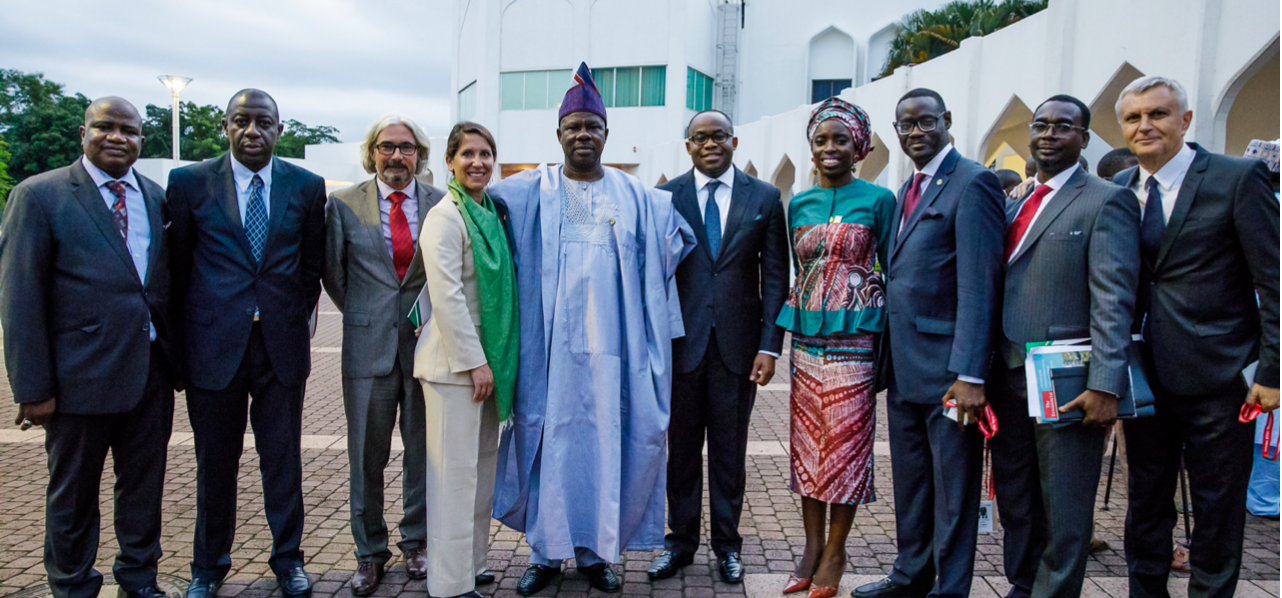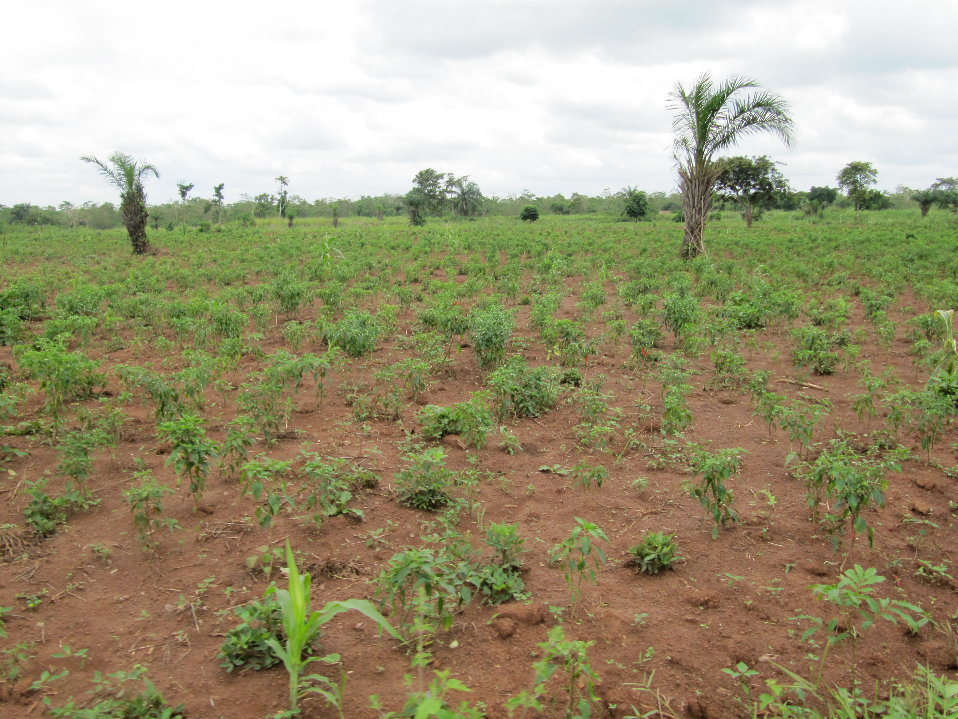Humanity is facing a huge global challenge, because 20% of total arable land, some 200 million hectares, are already degraded with an annual increase of about 12 million hectares. This degradation is due to rural poverty & migration, urban sprawl, deforestation, destruction of wetlands, conventional agriculture & livestock practices amongst others.
One solution to this problem is the creation of bankable, Land Degradation Neutrality Transformative projects which by nature are multi-actor, collaborative and cooperative. This approach is illustrated by the so-called ILE DOTUN project, located in Nigeria.
Developed by the Yoruba communities of Imeko and Aworo Kingdom with the assistance of LDN Advisory, it is supported by the Ogun State Government, the Nigerian Federal Ministry of Environment, the Nigerian Sovereign Investment Authority, Lafarge Africa, In Vivo Group and “Le Kollektiv” Digital New Space partnership led by Promethée and mundialis.
The origins of the Ile Dotun project reach back to 1936, when Imeko and Aworo kingdoms were declared forest reserves. However, from 1960 to 2000 massive destruction was registered in these reserves due to shifting cultivation, charcoal extraction and grassland extension. In 2015 Ogun State Government called on Lafarge Africa, a large cement business, and the Nigerian Sovereign Investment Authority, to help solve the degradation issue. In this year a public private partnership agreement was signed during the COP21 in Paris.

This agreement led to stage 1 of the project development, which resulted in field visits and the agreement of key principles with the local communities. These were endorsed by the Ogun State Government & the Nigerian Federal Ministry of Environment. Ultimately this project was promoted as the LDN Transformative Project flagship for Nigeria and beyond by the United Nations Convention to Combat Desertification (UNCCD).
Stage 2 of the project development included the appraisal of local settlement conditions, satellite support for diagnosis and surveys, a soil survey, crop selection and alternative land use system discussions with Nigerian Institute for Oil Palm Research, Rubber Research Institute of Nigeria, Cocoa Research Institute of Nigeria, National Horticultural Research Institute, Forestry Research Institute of Nigeria.
Stage 3 saw the formulation of a robust business plan to facilitate the ‘bankable investment’ status of the project and the design of a fair and efficient institutional and operational structure including the definition of 10 Special Purpose Vehicles to operate the project.
In stage 4 Special Purpose Vehicles divided the project into investment packages, identifying donors and investors, while performing a careful risk assessment and conceptualising a de-risking strategy.
The key principles of the Ile Dotun Land Use Plan and Charter state that
- the natural ecosystems will be actively restored in one third of the total area, including all water catchment areas and hydrological network plus biological corridors connecting them, allowing the passage of nomadic herds in determined periods when pasture is available.
- the farming communities will be confirmed as legitimate occupants and are granted a 50 year renewable concession over an average area of 10 hectares per family.
- all community settlements will be improved with the active participation of communities themselves, in terms of accessibility by roads, power supply through micro photovoltaic plants, basic education and health facilities, water and sanitation and sustainable low carbon robust housing combining traditional and modern climate resilient technologies.

Once the Ile Dotun project is in place the expected benefits for the local community are quite impressive:
- 3500 family farms will be consolidated and certified as organic producers with an annual income rising from USD 1,500 currently to USD 5,000 after 1 year and rising to 18,000 USD after 15 years.
- Tree cover will rise from currently 7% to 85% after 5 years.
- 90,000 decent green jobs will be created
- A volume of 140 mio. m³ per year of clean water will be sold to the Lagos metropolis
- 100 tons per month of organically grown vegetables will be produced for the Lagos inhabitants.
- The trees in the Ile Dotun area will permanently sequester a total of 33,5 million tons of CO2 equivalent after 20 years.
- The Return On Investment is 10 over contracted debt in a 20 year period while the break-even point being reached after 5 years after project start.
- It will generate a net income of 1m$ first year and exceed 35 millions$ per annum in 2035 for the Ogun State Government.
LDN Advisory currently has a pipeline of 11 projects covering 1.6 million hectares for a CAPEX estimated at 775 million euros. The monitoring of these activities will be facilitated by the HERMOSA platform.
For any project ideas that you might have please contact Alain Retière at retiere@ldn-advisory.com or choose to contact https://www.promethee.earth. You are also most welcome to contact sales@hermosa.earth if you prefer.